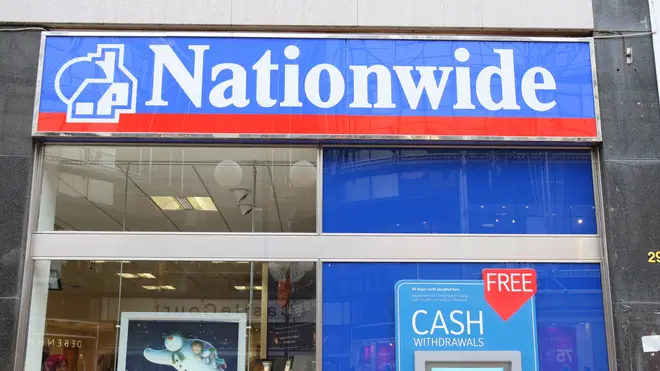
Tom Swarbrick 4pm - 6pm
27 September 2021, 10:04

A freephone helpline has been set up to help Nationwide members who are unsure about making a payment.
A new “scam checker service” has been launched by Nationwide Building Society to help protect its members from being tricked by criminals into making bank transfers.
The service offers members an extra layer of protection against authorised push payment (APP) scams, which have exploded during the coronavirus pandemic as fraudsters have bombarded people with bogus messages and adverts.
Nationwide members who are unsure about making a payment will be able to ring a new freephone helpline – 0800 030 4057.
They can talk to the Society’s staff about the nature of the payment and air any concerns. Alternatively, they can go into their Nationwide branch and talk to staff there.
If people are given the go-ahead to make the payment, but they still fall victim to a bank transfer (APP) scam, they will be refunded in full under the Society’s new scam protection promise.
In total £753.9 million was stolen in the first half of 2021 through fraud, an increase of 30 per cent compared to the same period last year, UK Finance’s latest fraud report published today highlights.
Read the report here: https://t.co/kiWNaBxmjt pic.twitter.com/XDBdZh7Fm6
— UK Finance (@UKFtweets) September 22, 2021
People will not be covered by the promise though if they withhold information Nationwide reasonably requests, lie to it, or are knowingly involved in committing illegal activity, including the scam itself.
And if they are warned against making the payment through the scam checker service but they still go ahead, they will not be covered by the promise.
In these cases, any APP scam refund will be made on a case-by-case basis, in line with the contingent reimbursement model (CRM) code just as it is now, considering factors such as vulnerability and the nature of the scam.
The promise specifically covers bank transfers and not payments such as cash withdrawals, cheques and card payments.
Don't let a scammer enjoy your retirement. Spot the signs of a pension scam. Protect your pension #BeScamSmart Visit https://t.co/41j4bRpdGP pic.twitter.com/NcEZ6zNt7R
— Financial Conduct Authority (@TheFCA) August 26, 2021
People paying by card may generally be able to get their money back in other ways, for example by using chargeback or, for credit cards, making a claim under Section 75 of the Consumer Credit Act.
The move will help to prevent scams from happening in the first place, so that people can avoid the emotional upset that they cause as well as losing their cash and then trying to claw it back.
Nationwide’s data suggests that speaking to members before they make a payment could help identify and stop up to two-thirds (65%) of attempted scams each year.
It said staff are trained to spot the signs of economic crime and routinely stop members from falling victim to scams.
It added that talking things through gives people time to stop and think before completing a payment and forms an essential part in educating members on the warning signs of economic crime.
We see high numbers of fraudsters emailing, calling or texting people claiming to be from HMRC.
If in doubt, we advise people not to reply directly to anything suspicious but to contact HMRC straight away and to search https://t.co/mBKhphnGQC for ‘HMRC scams’.
— Action Fraud (@actionfrauduk) September 24, 2021
Fake texts pretending to be from delivery companies or HM Revenue and Customs (HMRC), people advertising goods which are shoddy or do not exist, and romance scams where criminals pretend to be a potential partner are among the common methods used to trick people into transferring money.
Bogus investment offers have also been rife as people look for ways to make their money go further.
Nationwide will continue to be part of the voluntary CRM code that reimburses blameless bank transfer scam victims.
The code has come under scrutiny amid concerns that some banks may not be interpreting it consistently and may be relying too heavily on generic scam warnings in some cases.
TSB has its own fraud refund guarantee, which according to the bank has resulted in 98% of its fraud cases being refunded.
Industry figures released by UK Finance last week showed £355.3 million was lost due to fraud where people had authorised the transaction in the first half of 2021 – marking a 71% jump compared with the same period in 2020.
But less than half (42% or £150.7 million in cash terms) of the total was returned to customers.
Other measures in place to thwart scammers include confirmation of payee – which enables people to check the name of the person they think they are paying matches the name on the account.
Joe Garner, chief executive of Nationwide Building Society, said: “Success is not just ensuring victims are reimbursed but also preventing these crimes happening in the first place.
“That’s why we are introducing our scam checker service to help prevent our members being scammed.
“We’re also calling on the big tech, telecoms and social media companies that play host to these crimes to take more responsibility for stopping them. We must work better together in the mutual interest of fighting this criminal activity.”